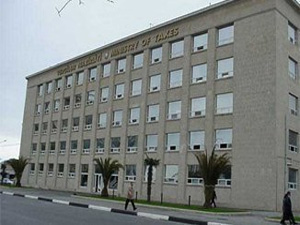



Date:31/07/12
 The Ministry of Taxes of Azerbaijan has developed a bill on the promotion of cashless payments, which is submitted to the Cabinet of Ministers to agree with the relevant state agencies.
The Ministry of Taxes of Azerbaijan has developed a bill on the promotion of cashless payments, which is submitted to the Cabinet of Ministers to agree with the relevant state agencies.
The bill stipulates incentives to encourage non-cash payments, particularly the introduction of preferential tax rates. It is expected to introduce benefits for users of POS-terminals. A maximum amount of cash that will be used in one operation will be limited, that is a certain limit will be set. Financial sanctions will be applied for violation.
Cashless payments are predominant due to their obvious advantages to the calculations in the cash form. With the application of non-cash payments in practice in Azerbaijan, the credit resources of the banking system will increase and credit relationships will develop even more. Cashless payments will reduce distribution in the form of additional costs for printing, storage, transportation, and the conversion of notes and coins.
According to the National bank of Azerbaijan, the population owns 94.6 percent of broad money, but the situation is opposite for example in Western Europe.
About 90 percent of the cash flow is accounted for non-cash payment and only 10 percent - cash. People in the advanced countries rarely carry a cash payment and payment is carried out by plastic cards almost everywhere.
Azerbaijan needs to strengthen domestic banking activities to promote cashless payments to eradicate conservative thought among Azerbaijani citizens preferring to carry cash. . Moreover, it is important to improve the technical, organizational and personnel readiness of the Azerbaijani banking system for the full implementation of cashless payments for individuals.
Ministry of Taxes to switch to non-cash payments
 The Ministry of Taxes of Azerbaijan has developed a bill on the promotion of cashless payments, which is submitted to the Cabinet of Ministers to agree with the relevant state agencies.
The Ministry of Taxes of Azerbaijan has developed a bill on the promotion of cashless payments, which is submitted to the Cabinet of Ministers to agree with the relevant state agencies.The bill stipulates incentives to encourage non-cash payments, particularly the introduction of preferential tax rates. It is expected to introduce benefits for users of POS-terminals. A maximum amount of cash that will be used in one operation will be limited, that is a certain limit will be set. Financial sanctions will be applied for violation.
Cashless payments are predominant due to their obvious advantages to the calculations in the cash form. With the application of non-cash payments in practice in Azerbaijan, the credit resources of the banking system will increase and credit relationships will develop even more. Cashless payments will reduce distribution in the form of additional costs for printing, storage, transportation, and the conversion of notes and coins.
According to the National bank of Azerbaijan, the population owns 94.6 percent of broad money, but the situation is opposite for example in Western Europe.
About 90 percent of the cash flow is accounted for non-cash payment and only 10 percent - cash. People in the advanced countries rarely carry a cash payment and payment is carried out by plastic cards almost everywhere.
Azerbaijan needs to strengthen domestic banking activities to promote cashless payments to eradicate conservative thought among Azerbaijani citizens preferring to carry cash. . Moreover, it is important to improve the technical, organizational and personnel readiness of the Azerbaijani banking system for the full implementation of cashless payments for individuals.
Views: 839
©ictnews.az. All rights reserved.Similar news
- 24% of U.S. Adults have made phone calls on the Internet
- UNESCO puts sustainable learning online
- Australia gives incentives for the use of telehealth
- US launches computer programme for poor kids
- UN declares web access as human right
- Facebook growth slows in stalkerbase heartlands
- One Third of Millionaires Use Social Media
- Facebook Seeks Bigger Role in Software for Mobile Apps
- Icann increases web domain suffixes
- IBM launches new social networking platform for enterprises
- Google Notches One Billion Unique Visitors Per Month
- Internet providers cut international channel renting costs by 60%
- Azerbaijan launches standard time on internet
- Icann launches facility to ease DNSSec adoption
- Social network data mining yields worrying results for traditional media





















